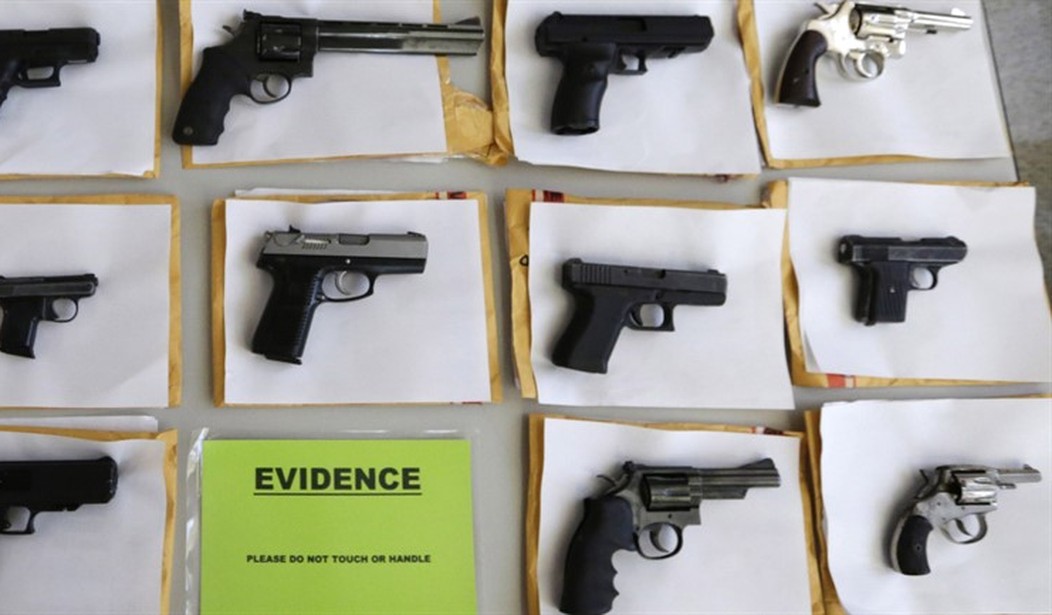In the wake of the shooting at Umpqua Community College in Oregon, there's been a lot of talk about America's gun laws and ways to prevent mass shootings. As my colleague Matt Vespa wrote on Friday, there's a lot of misinformation on the topic being spread around.
One law professor, Eugene Volokh, decided to do the math and see if gun laws were actually effective in reducing crime. Volokh drew up a graph comparing a state's homicide rates against its Brady Campaign score. (A state with an an "F" from the Brady Campaign means that there are fewer gun laws.) Volokh found that there's zero correlation between a state having strict gun laws and a lower homicide rate.

The correlation between the homicide rate and Brady score in all 51 jurisdictions is +.032 (on a scale of -1 to +1), which means that states with more gun restrictions on average have very slightly higher homicide rates, though the tendency is so small as to be essentially zero. (If you omit the fatal gun accident rates, then the correlation would be +.065, which would make the more gun-restricting states look slightly worse; but again, the correlation would be small enough to be essentially zero, given all the other possible sources of variation.)
Recommended
Gun violence is a tragedy, and it's unfortunate that numbers are muddled for political points. With anti-gun groups like Everytown releasing very inaccurate maps claiming there are far more school shootings than there actually are, and suicides are being lumped into the "gun violence" figures, it's hard to get an accurate, honest look on the state of gun crime in the United States.

























Join the conversation as a VIP Member